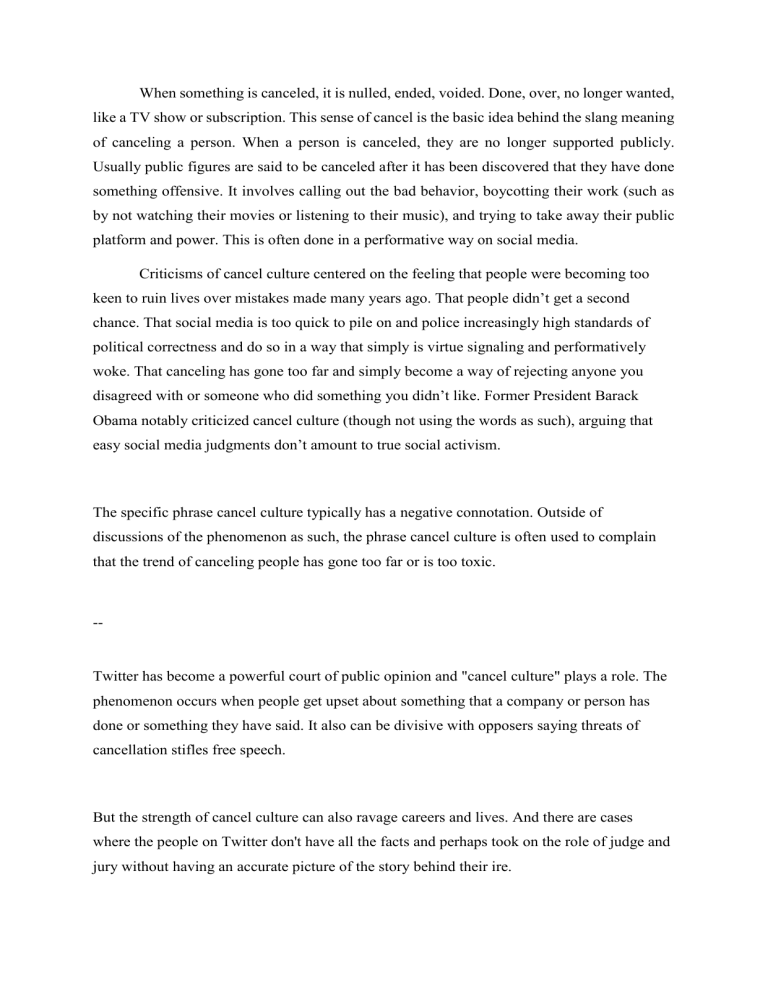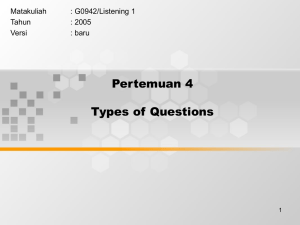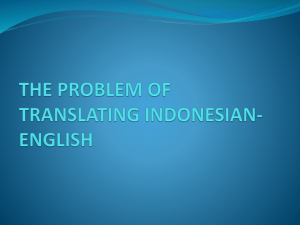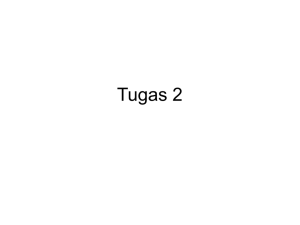
When something is canceled, it is nulled, ended, voided. Done, over, no longer wanted, like a TV show or subscription. This sense of cancel is the basic idea behind the slang meaning of canceling a person. When a person is canceled, they are no longer supported publicly. Usually public figures are said to be canceled after it has been discovered that they have done something offensive. It involves calling out the bad behavior, boycotting their work (such as by not watching their movies or listening to their music), and trying to take away their public platform and power. This is often done in a performative way on social media. Criticisms of cancel culture centered on the feeling that people were becoming too keen to ruin lives over mistakes made many years ago. That people didn’t get a second chance. That social media is too quick to pile on and police increasingly high standards of political correctness and do so in a way that simply is virtue signaling and performatively woke. That canceling has gone too far and simply become a way of rejecting anyone you disagreed with or someone who did something you didn’t like. Former President Barack Obama notably criticized cancel culture (though not using the words as such), arguing that easy social media judgments don’t amount to true social activism. The specific phrase cancel culture typically has a negative connotation. Outside of discussions of the phenomenon as such, the phrase cancel culture is often used to complain that the trend of canceling people has gone too far or is too toxic. -- Twitter has become a powerful court of public opinion and "cancel culture" plays a role. The phenomenon occurs when people get upset about something that a company or person has done or something they have said. It also can be divisive with opposers saying threats of cancellation stifles free speech. But the strength of cancel culture can also ravage careers and lives. And there are cases where the people on Twitter don't have all the facts and perhaps took on the role of judge and jury without having an accurate picture of the story behind their ire. “Society is still grappling with what’s considered ‘too far’ on the internet,” said Anne Charity Hudley, the chair of linguistics of African America at the University of California. “Something that can be used for good can also be weaponized. Everything can go too far; even free speech can go too far.” -In one case in May, a Santa Monica woman said in an opinion piece published by USA TODAY that her life was threatened by a “social media mob” that misunderstood what was really happening in a 34-second clip. The video showed her holding a power drill in Santa Monica, California, after uprisings there. People on the internet alleged she was posing for an Instagram photo, but in real life, she says she was joking with local volunteer workers. There are also elements of cyberbullying that can happen when people are “called out” for their behavior. "Cyberbullying is a negative outcome, but it can come from both cancel culture and people trying to oppress others," said Alexander of the University of California. But it can lead to change, too Cancellation, in most cases, isn't permanent. But widespread calls to boycott or call out people, companies and institutions have led to change that many view as positive. Think back to the #OscarsSoWhite controversy. When activist April Reign sparked the hashtag in 2015, the nominees for the prestigious acting awards visibly lacked diversity. The Academy responded to the outcry by setting inclusion goals, and in 2020 announced that it had more than doubled the number of minority members since 2016. And social media-spun uprisings have contributed to the calls for racial justice in America. When people online point out the issues and provide video proof online, it has led to people being arrested and, sometimes convicted, of crimes or changes to policy. "Social media has allowed people to organize more comprehensively and react more quickly," Alexander said. "Changes are happening in terms of police departments, universities and schools looking at their anti-blackness policies. Now, how do we sustain it? That's the next big question." Cancel culture is tethered to other social media occurrences that can cause real harm. Sometimes, when people voice controversial opinions online, they get doxed, or have their private information researched and posted, by a digital vigilante. There are instances where the wrong person’s information was shared, and others where the content was misinterpreted. There are also elements of cyberbullying that can happen when people are “called out” for their behavior. "Cyberbullying is a negative outcome, but it can come from both cancel culture and people trying to oppress others," said Alexander of the University of California. --For those at the receiving end of cancel culture, the consequence can lead to loss of reputation and income that can be hard to recover from. Critics of cancel culture say that it is the equivalent of letting an angry mob decide a person's fate. Worse still they argue, it stifles free speech, preventing some from voicing opinions out of fear they will be personally attacked. "Right or not, people have such a propensity to make a statement or make a comment without knowing all the facts," explains Denise Graziano, chief executive of marketing firm Graziano Associates. According to Kimberly Foster, founder of the website For Harreit, who has written about cancel culture - the term is used to apply to range of actions. "Cancel culture can include everything from people with the most money and privilege in our society getting push back for saying things others found distasteful to regular everyday people losing their jobs for relatively minor infractions." When it was first being used among young people on the internet, cancelling was a way to say, "I'm done with you". But as cancelling became more widely used on social media it has grown into a way to call on others to reject a person or business. This can happen when the target breaks social norms - for example, making sexist comments - but it has also happened when people have expressed opinions on politics, business and even pop culture. --- Hal ini juga berlaku pada kesalahan masa lalu, yang prakteknya sering dikritik dikarenakan manusia terus berkembang dan memperbaiki diri. Cancel culture sering digambarkan secara negatif, namun TFR ingin berargumen bahwa cancel culture juga dapat membawa berbagai dampak positif. Pertama, cancel culture merupakan alat kontrol sosial yang kuat. Utamanya, budaya inimerupakan alat untuk meminta pertanggungjawaban individu atas perbuatan mereka. Gerakan Me Too dan dihukumnya Harvey Weinstein beberapa waktu lalu merupakan salahsatu contoh cancel culture yang paling tersohor. Walaupun gerakan dan kasus tersebut takdapat menghentikan pelecehan seksual sepenuhnya, keduanya telah berhasil mengkomunikasikan efek jera. Contoh ini membuktikan bahwa orang-orang paling berkuasa, terkenal, dan berpengaruh sekalipun dapat dijatuhi sanksi. Para penyintas pelecehan seksual pun merasa lebih berdaya dalam bersuara, dengan dukungan komunitas global di belakang mereka. Hal ini mengisyaratkan bahwa pelecehan seksual tidak boleh dibiarkan, dan pelakunya akan dimintai pertanggungjawaban atas perbuatan mereka. Kedua, cancel culture dapat memberikan pembelajaran bagi semua pihak yang terlibat. Contoh yang baru-baru ini terjadi di Indonesia adalah kasus YouTuber Indira Kalistha yang membuat pernyataan yang oleh publik dianggap tidak pantas dan tidak bertanggung jawab terkait pandemi COVID-19. Dalam sebuah wawancara di kanal YouTuber lain – Gritte Agatha –, Indira menyatakan bahwa dirinya merasa tidak perlu menggunakan masker kala bepergian maupun mencuci tangan sebelum makan, walau sebelumnya ia baru bepergian atau menyentuh berbagai barang. Komentar ini menimbulkan kemarahan masyarakat, yang menganggapnya sangat tidak sensitif terhadap wabah yang sedang terjadi saat ini. Yang terjadi kemudian adalah upaya mitigasi krisis hubungan masyarakat dengan menerapkan sebuah formula klasik. Indira Kalistha menjadi bintang tamu di kanal YouTube Deddy Corbuzier untuk mengklarifikasi dan memohon maaf atas pernyataannya tersebut. Indira menjadi contoh bagi figur publik lainnya agar lebih bertanggung jawab dalam mengelola pengaruh yang mereka miliki, termasuk dalam menjaga agar tidak mengeluarkan komentar yang tidak teredukasi dan dapat menyesatkan pengikut mereka. Hal ini juga menjadi pembelajaran bagi para pembuat konten lain seperti Gritte Agatha agar bersikap kritis saat melakukan wawancara, menyunting, ataupun menyampaikan konten dan tidak menyampaikan informasi yang tak bertanggung jawab. Masyarakat pun diuntungkan, karena kontroversi ini telah meningkatkan kesadaran tentang pentingnya atribut dan kebiasaan perlindungan diri dalam menghadapi pandemi COVID-19. Tentunya, dampak-dampak positif di atas tidak bermaksud untuk mengklaim bahwa stigma negatif yang menempel pada cancel culture selama ini tidak beralasan. Cancel culture merupakan ladang subur untuk menumbuhkan mentalitas kelompok yang mendorong individu untuk berpihak pada suara mayoritas dalam menghadapi isu-isu kontroversial, terlepas dari apa yang sebetulnya mereka rasakan atau yakini. Cancel culture dapat membungkam individu-individu yang memiliki opini berbeda karena mereka takut akan dikucilkan atau diserang karena opini yang mereka miliki. Terlepas dari apakah pendapat-pendapat yang berbeda ini valid, hal ini terbilang problematis. Pertama, kita akan dirampas kesempatannya untuk mendengarkan berbagai perspektif yang dapat memperkaya pemahaman kita akan dunia. Kedua, kalaupun opini yang berbeda itu jelas-jelas salah – misalnya opini rasis –, dengan membungkam opini-opini tersebut maka kita telah membiarkan kelompok-kelompok penganutnya tidak terekspos sehingga kehilangan kesempatan untuk mengedukasi mereka. Sebagai efek samping dari cancel culture, akhir-akhir ini terlihat semakin marak masyarakat yang ikut-ikutan bersuara dalam berbagai perkara, bahkan dalam perkara yang tidak sepenuhnya mereka pahami atau pedulikan. Hal ini dilakukan untuk membangun citra sebagai pribadi yang ‘woke’, meningkatkan nilai sosial dengan mengomentari isu-isu populer – biasa disebut performative activism –, atau untuk mendorong agenda pribadi. Inilah alasan mengapa semakin banyak pejuang keadilan sosial bersuara di ranah online ketika muncul topik yang hangat, sembari mengatasnamakan aksi mereka sebagai aktivisme. Begitu signifikannya fenomena ini sampai mantan presiden Amerika Serikat Barrack Obama membahas cancel culture pada tahun 2019 silam, “Saya kadang merasa bahwa sekarang ini, di antara sejumlah anak muda, dan ini diakselerasi oleh media sosial, ada pandangan bahwa ‘cara saya melakukan perubahan adalah dengan menghakimi orang lain, dan itu cukup.’” Obama melanjutkan, “Hal itu bukanlah aktivisme dan tidak membawa perubahan. Jika yang kamu lakukan hanya melempar batu, maka kamu mungkin tidak akan membawa perubahan signifikan.” Pada intinya, cancel culture diatur oleh nilai-nilai yang kita anut pada masa tertentu. Nilainilai ini berubah dan berevolusi seiring dengan berjalannya waktu; tidak pernah konstan. Inilah yang menyebabkan sebagain orang dapat ‘pulih’ setelah di-cancel. Kontroversi John Lennon di atas, misalnya, tentu tidak akan menyebabkan kekacauan separah itu bila terjadi di tahun 2020. Reaksi negatif mungkin tetap ada, namun grup musik yang begitu populer dan berpengaruh seperti The Beatles tidak akan di-cancel berdasarkan pandangan mereka tentang sekularisme di tahun 2020. Pada akhirnya, cancel culture akan terus ada di masyarakat. Saat ini kita sedang menyaksikan contoh yang sangat nyata dari cancel culture dengan berlangsungnya gerakan Black Lives Matter yang telah mengakibatkan cancellation atas sejumlah figur publik dan institusi. Metodenya mungkin berubah, begitu pula namanya, namun sudah merupakan sifat alami kita untuk menolak (cancelling) apa yang tidak sesuai dengan nilai-nilai yang kita anut. Dampak positifnya banyak, begitu juga dampak negatifnya. Dengan media sosial, kita memiliki kekuatan lebih dalam menerapkan kontrol sosial, tetapi artinya kesalahan yang kita perbuat dapat mendatangkan dampak yang lebih besar juga. Ayo tetap berhati-hati dan bertanggung jawab dengan kata-kata yang kita pakai! --- Cancel Culture merupakan suatu bentuk demokrasi sosial media, yang berfungsi sebagai alat keadilan sosial sekaligus senjata intimidasi secara masal. Cancel culture kerap terjadi di hampir seluruh dunia, namun yang paling berpengaruh adalah di negara Korea Selatan ini. Orang Korea sendiri terkenal sangat mencintai negaranya, dan mereka tidak ingin ada orang yang dapat merusak citra Korea sehingga cancel culture di Korea cukup sering terjadi. Kepercayaan ini dikenal sebagai 기분 (Kibun) yang “meresap ke setiap aspek kehidupan Korea dan dapat dijelaskan dalam istilah kebanggaan, wajah, suasana hati atau keadaan pikiran dan perasaan.” Hal tersebut juga berkaitan dengan prinsip konfusianisme yang dianut masyarakat Korea, dimana seseorang harus menghormati otoritas, berperilaku kebajikan, bekerja dengan rajin, dan menghindari hal-hal yang dinilai tidak baik. Idol KPOP pun secara tidak langsung dituntut untuk mengikuti aturan dan norma sosial masyarakat Korea, sehingga jika muncul skandal atau gosip mengenai idol KPOP yang melanggar norma, maka secara langsung masyarakat menerapkan cancel culture kepada idol tersebut. Apalagi, sekarang banyak isu bertebaran mengenai masa lalu para idol tentang bullying dan hal negatif lainnya. Cancel Culture memiliki dampak yang cukup dahsyat lho! Selain berdampak pada kehidupan sosial, idol dan artis juga merasakan dampak lain, seperti sakit mental yang kemungkinan besar dituntut untuk mengakhiri karirnya. --- However, cancel culture is not just an occurrence that takes place in Western countries. Cancel culture is a worldwide phenomenon, and one that holds a lot of weight in a country like South Korea. People who are exposed for engaging in controversial behaviour are often called out and critiqued on social media, analyzed as to whether or not what they did is worthy of redemption, and then either given a second chance or have their careers brought to an abrupt halt. This may be because Korean people don’t want those who may jeopardize the image of Korea to still be in positions of popularity and power and be representing them. In fact, this belief is known as ‘kibun ‘기분’ which “permeates every facet of Korean life and can be described in terms of pride, face, mood or state of mind and feelings.” This relates to Confucian values and principles and South Korea being heavily influenced by it. These principles state that one should respect authority, behave with virtue, work diligently, avoid extremes, and to live fairly. Kibun relates to this because as a major concept to the way of life within Korea, it means that you have to make sure that you are being respectful, courteous, and not engaging in any activity that would result in a loss of face whether in a social setting or a business context. This notion pertains to Korean idols too. Koreans expect everyone, including idols, to follow the rules and social norms of their society, so when someone does something outside of the expected behaviour and strict set of rules, they are met with the vitriol and heavy critique for it. From major scandals like distributing revenge porn, blackmail, underage trafficking, domestic violence, and spycams and sex abuse to normal things like dating or gaining weight, there has always been scrutiny and crticism involved. There are already overwhelming amounts of pressure on these idols to be perfect and maintain their image. It’s one thing to expect idols to be decent human beings and not abuse, violate the autonomy of others, or distribute illicit drugs because not only are those things against the law, but they’re the things we expect of someone who is moral, has common decency, and isn’t a monster. But, demanding idols to not date, adhere to strict beauty standards and not gain weight, and even reprimanding them for the harmless things they’ve done in the past is still fair game for Korean netizens and the general public to analyze and judge. This behaviour relates to the theory of Panopticism by the French philosopher, Michel Foucault, which discusses the concept of constantly being surveilled and not wanting to engage in activity that would go against society nor the government’s principles for the fear of being punished, which causes people to live their lives almost as prisoners. There are huge expectations placed on Korean idols to be perfect, so when they stray from that - even just a little, they’re often met with malicious online remarks, cyber attacks, bullying, and wrath from Korean netizens. On Sunday, November 24th, former KARA member and popular soloist in both Korea and Japan, Goo Hara, was found dead in her apartment. Reports have not yet been released as to what the cause of death was, however, Goo Hara had previously attempted suicide back in May of 2019, but was unsuccessful, so there are speculations that this may have been the cause of death. Nonetheless, Goo Hara was a victim of endless online bullying from people who either blamed her for being abused, didn't believe that she was actually abused, or claimed that she deserved it. People always took the chance to trivialize her experience and try to silence her. Goo Hara was not only both sexually and physically assaulted by her exboyfriend, but she was manipulated and blackmailed with revenge porn. Despite everything going on in her personal life, K-netizens never failed to slander her in the public eye rather than extend a hand of sympathy and understanding. On top of being nitpicked by the general public, she was made fun of by some popular idols , as well. She was rarely offered the necessary moral support and grace that every human being needs, especially one dealing with trauma. Goo Hara experienced so much grief, suffering, and even gender-based violence and rather than being supported online by the general mass, she was met with even more harassment and vitriol. Back in August of 2019, Jihyo , a member of the superstar girl group, TWICE , was exposed by Dispatch for being in a relationship with former Wanna One member and current solo artist, Kang Daniel. Despite the fact that dating is completely normal and a regular part of everyday life, it is heavily looked down upon for Korean idols. Both Jihyo and Kang Daniel were met with comments admitting disgust, disappointment, and anger from fans and just average Korean netizens. Some of the most top-rated comments translated by NetizenBuzz include: “4. [+382, -10] His fans helped him sell 450,000 albums and he pays them back with news of a relationship, I feel bad for his fans ㅋㅋㅋㅋㅋㅋㅋㅋㅋㅋㅋㅋㅋㅋㅋㅋㅋㅋㅋㅋㅋㅋㅋㅋㅋㅋㅋㅋㅋㅋㅋㅋㅋㅋ” “5. [+336, -10] He's really stupid. All he had to do was wait a bit and he'd be able to afford several more buildings at his age but he blew it all over a relationship.” And, even after Jihyo made her first public appearance after her relationship was exposed, a lot of the translated comments were about how her appearance had declined or how she just wasn’t attractive at all anymore, such as: “3. [+434, -117] Jihyo's pretty but I'll be honest, her beauty changed for the worst compared to when she was younger…” On October 14, 2019, a former member of a top Korean girl group, f(x), Sulli, committed suicide. Sulli had long been a target of vicious comments from netizens who constantly critiqued her for her image, her rumoured sexuality, her confidence, and her passion for social justice. Sulli, is just one of the many examples of Korean idols who was never given the chance to grow and live authentically and carefree as they are without being met with online persecution, torment, and harassment by netizens There was also the persecution of Tablo from Epik High who endured death threats, abuse, and heckling online from hundreds of thousands of Koreans who did not believe that he graduated from Stanford University. He was accused of having a fake diploma and despite being forced to provide his transcript records, he was still accused of engaging in diploma fraud. The non-stop attacks and doxing affected not only Tablo, but every member of his family, which unfortunately, resulted in his father dying of heart disease. Eventually, Tablo was able to prove himself to be telling the truth and filed a lawsuit against those who were apart of the smear campaign against him. Additionally, Wonho of Monsta X has been met with vitriol online based on a string of allegations from 2013 made against him by former idol trainee, Han Seo Hee, and a former ulzzang model, Jung Da Eun. Despite both parties involved in accusing Wonho of these allegations being involved in scandals of their own with Han Seo Hee who reportedly admitted to be the “middle man” to distributing LSD to another idol and Jung Daeun who admitted to smoking marijuana too. Nevertheless, Wonho is dealing with the brunt of the infuriation and disfavor from the Korean netizens. Some of the top comments under this post as translated by Netizenbuzz reveal sentiments about Wonho like: 1. “[+442, -7] He lived his life in such a makjang way that it makes you question how he ever got to debut at all” 2. “[+421, -6] He's pretty much exiled from the industry for good at this point, Wonho's songs should all be banned from broadcast” 9. “[+43, -0] Dispatch is on this now, it's game over ㅋㅋㅋ probably why he tried to beat everyone to the punch by leaving the group ㅋㅋㅋㅋ meanwhile his fans are crying and whining asking him not to leave ㅋㅋㅋㅋㅋㅋㅋㅋㅋ” 10. [+35, -1] The other Monsta X members better get drug tested too. Regardless of the fact that Wonho has lived a life free of scandals up until this point and has actively worked towards being kind, respectful, and has gotten involved in a multitude of different social justice initiatives, that hasn’t been enough to protect him from the critiques he’s received from those who believe him continuing as an idol would negatively affect Korea’s image. Fans of Monsta X have been raising the awareness and advocating for Wonho’s behalf for the hostile treatment that Wonho has been experiencing from the constant cyber attacks and from having to withdraw from his group. Still, the future of Wonho’s career lies in the hands of his company, his legal team, and whether or not the general public in Korea are willing to grant Wonho a second chance for the mistakes he allegedly made in his youth. As of November 29, 2019, the Korea Singers Association calls for all portal sites, like Naver, to shut down the comment sections on all entertainment articles. Additionally, they want the National Assembly to create a bill that encourages for there to only be factual articles and to punish those who write articles that will encourage malicious comments. This is all being done because they want for there to be better policies to protect Korean artists online. This may hopefully encourage Korean entertainment companies to do a better job at implementing measures to properly protect their artists rather than leaving them to either deal with the abuse by themselves, or terminating their contract so that the agencies don't have to deal with the negative publicity. With all of that being said, it’s very unfortunate that idols are made to conform to this narrative that they must be perfect and appeal to the conscience of the mass, even if it means compromising their own identity. It’s irrational to expect people to live a life without flaws because everyone makes mistakes. That’s what makes us human. What’s important is being able to acknowledge where one went wrong and then grow from there in an effort to not make that same mistake again. We cannot erase, change, or alter our past in any way, but at the very least, we can work towards being better people for the future. Applying these unnecessary pressures on idols to be perfect to not only debut into a ruthless and incredibly competitive industry, but to have a spotless past, as well, is unreasonable. Setting high performance standards and wanting the best for your country’s people, especially those who have a higher social standing, is completely understandable. This system of upholding a high standard is one of the many things that makes Korea unique, especially because of its lengthy history of making use of Confucianism. And, it would be incredibly difficult to try and reverse and change centuries of how a society operates and what it expects from its citizens. But, it’s important to note that making mistakes and doing things outside of the social norm are okay as they are essential for growth, developing individuality, and a strong sense of self as a human being. This culture of purity is not realistic, especially knowing that people don’t apply those same rules and restrictions to themselves. Not wanting to support people who are rapists, abusers, or have said/agreed with violent and problematic sentiments is totally okay, but condemning and cancelling people for doing things that anyone else can do (like dating, gaining weight, or not having a perfect youth) with lesser criticism and vilification is another. As Leo Tolstoy once said, “if you look for perfection, you'll never be content.”



